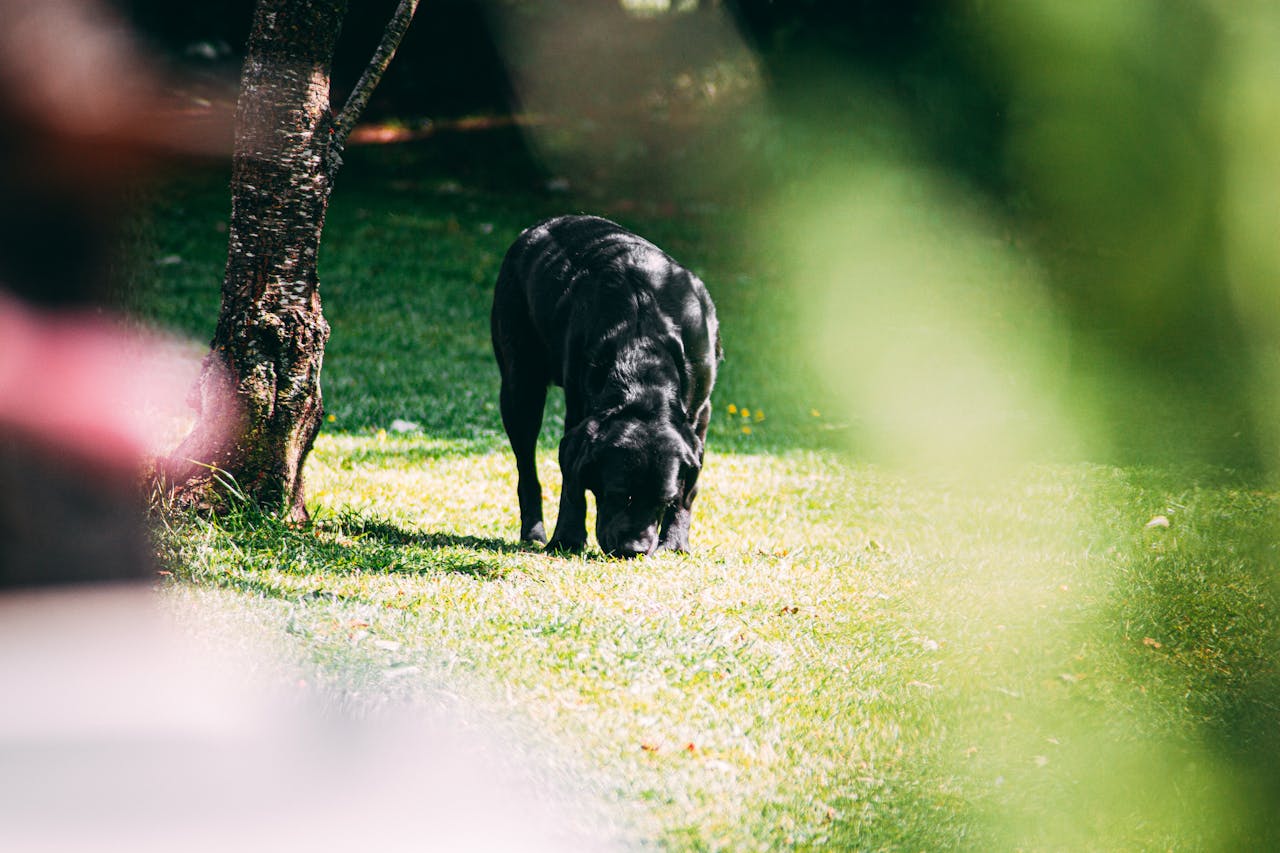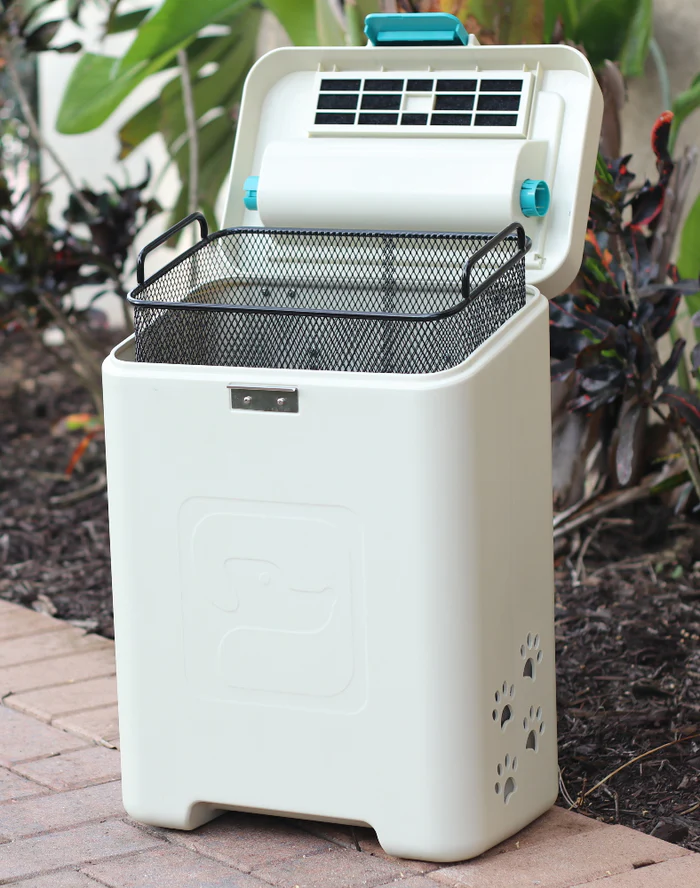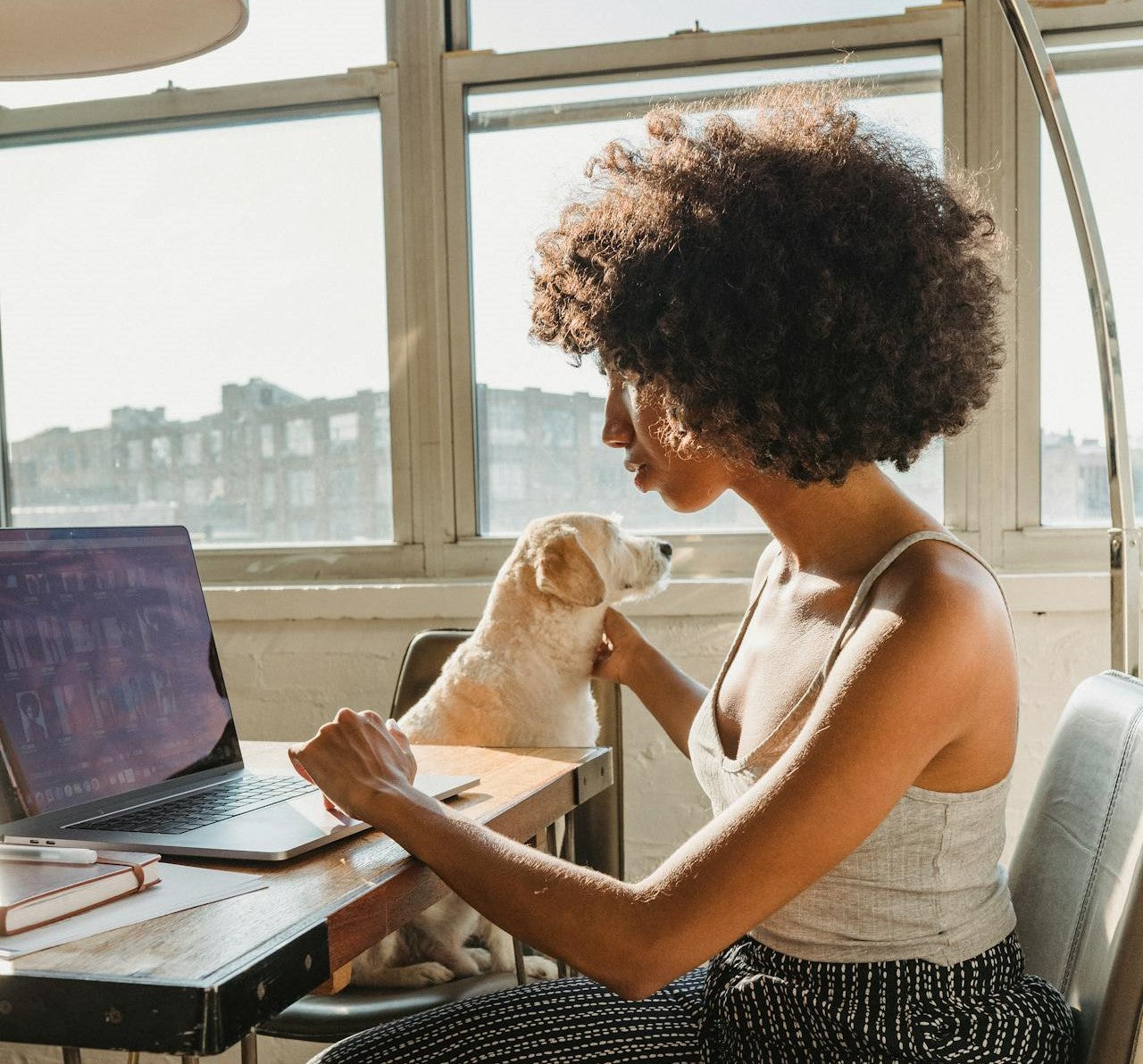Does seeing your dog gleefully chomping on another dog's poop make you cringe? You're not alone. Coprophagia, the fancy term for eating poop, is a surprisingly common behavior in dogs. While it might seem gross to us, there can be several reasons behind this behavior. Let’s explore why your dog eats poop and equip you with the knowledge to better handle this problem in the future.
Coprophagia: Why Does My Dog Do That?
Puppies are naturally curious creatures, and exploring the world with their mouths is a normal part of their development. So, if you catch your young pup taking a nibble on its own stool or another dog's waste occasionally, it’s not necessarily a reason to freak out.
In fact, a 2012 study by the American Veterinary Society of Animal Behavior concluded that when a dog eats poop, its a “reflection of an innate predisposition of ancestral canids living in nature that protects pack members from intestinal parasites present in feces that could occasionally be dropped in the den/rest area.”
That is a fancy way of saying your dog’s ancestors ate poop to keep their living areas free from harmful germs that could make them sick.
Other Causes of Coprophagia in Adult Dogs
Evolutionary theories aside, there are three main reasons why adult dogs might engage in coprophagia today.
- Nutritional Deficiencies: Sometimes, a dog's diet might not meet all their nutritional needs. This can lead them to seek out additional nutrients from, well, unsavory sources.
- Medical Conditions: Certain medical conditions, like intestinal parasites or digestive problems, can also contribute to coprophagia. If your dog's poop-eating habit coincides with other symptoms like vomiting, diarrhea, or weight loss, it's crucial to consult your veterinarian to rule out any underlying health issues.
- Behavioral Reasons: Boredom, anxiety, or even a desire for attention can sometimes lead dogs to develop coprophagia. If your dog doesn't have enough mental stimulation or feels stressed in their environment, they might resort to this behavior.
Is It Harmful if Your Dog Eats Poop?
While the thought of it might make us recoil, eating poop occasionally might not necessarily harm your dog. However, there are some potential health risks to consider. Parasites and bacteria present in feces can make your dog sick. This is why keeping up with regular deworming and parasite prevention treatments is so important for your dog's overall health, regardless of their poop-eating habits.
If you're concerned about your dog's poop-eating behavior or if other symptoms like vomiting, lethargy, or a decrease in appetite happen when your dog eats poop, don't hesitate to reach out to your veterinarian.
Taking Action: How to Stop Your Dog from Eating Poop
The first step to tackling your dog's coprophagia is identifying the underlying cause. From a nutritional perspective, a great first step is to ensure they're getting all the nutrients they need. Sometimes, dietary adjustments can make a big difference. If boredom or anxiety seem to be the culprits, the best step may be to get your furry friend engaged! Increase playtime, challenge their minds with training sessions, and provide stimulating toys or food puzzles.
As we mentioned before, if you suspect an underlying medical issue, schedule a visit with your veterinarian. They may be able to rule out some issues, provide a diagnosis, and recommend the best course of treatment to address the underlying cause.
Management Tips While You Investigate
While you work on uncovering the root cause, here are some ways to minimize poop-eating opportunities:
- Leash Alertness: Keep your dog on a leash during walks and be their watchful companion. When they seem interested in another dog's waste, redirect their attention with a playful cue or a gentle tug.
- Poop Patrol Duty: Make scooping up waste a priority, both during walks and in your backyard. Limiting access to feces reduces temptation.
- Positive Reinforcement Wins: Reward good behavior! When your dog leaves poop alone, praise them or offer a treat. Positive reinforcement helps them associate good choices with happy outcomes.
PawPail to the Rescue!
While addressing the root cause is crucial, cleaning up after your dog promptly can significantly reduce the chances of them—or any other dog in your neighborhood—engaging in coprophagia. This is where PawPail comes in!
By using a convenient and durable solution like PawPail, you can ensure your apartment or shared space stays fresh and odor-free, reducing the potential triggers for your dog's coprophagia. Our innovative design lets you enjoy your yard again with quick, mess-free pet waste disposal, keeping your focus on creating a cleaner environment for both you and your pet.
Want to learn more about our convenient, sanitary pet waste disposal solutions? Check out PawPail today!



